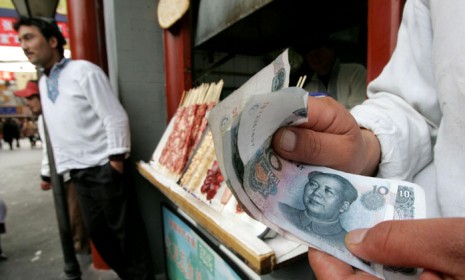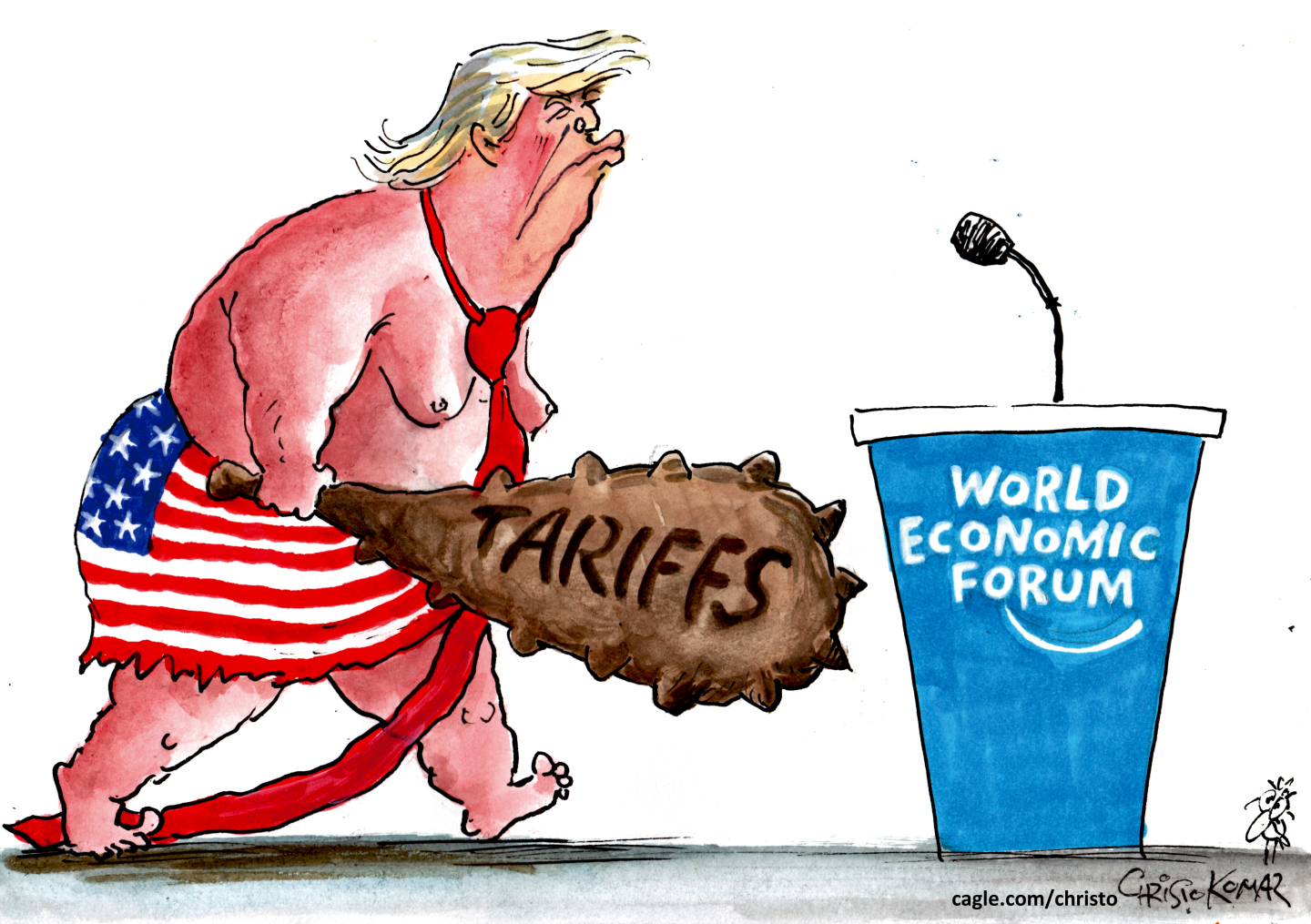5 reasons China's economy is slowing down
After years of furious growth, the world's second-largest economy is losing steam, and the falloff will likely have negative repercussions for the rest of the world

China recently released data showing an "across-the-board" slowdown in its economy, sparking concerns that it could drag down the global economy, too. "China has been the largest single contributor to global economic growth in recent years," says Keith Bradsher at The New York Times, and it's unlikely that the country's problems can be contained. "Remember: What happens in China, does not stay in China," says Thomas Mucha at Global Post. Here, five reasons why China's economy is faltering:
1. Economic weakness in the U.S. and Europe
China has long relied on its cheap export machine to fuel growth, but exports slowed dramatically in April. The main culprits are a "recession in Europe and a patchy economic recovery" in the U.S., say Aileen Wang and Nick Edwards at Reuters. The dip in exports was expected, given that "it's hard for the Chinese to sell stuff to Europeans who don't have money to spend," says Mucha.
The Week
Escape your echo chamber. Get the facts behind the news, plus analysis from multiple perspectives.

Sign up for The Week's Free Newsletters
From our morning news briefing to a weekly Good News Newsletter, get the best of The Week delivered directly to your inbox.
From our morning news briefing to a weekly Good News Newsletter, get the best of The Week delivered directly to your inbox.
2. A falloff in domestic demand
In more troubling trade news, China's imports in April rose an anemic 0.3 percent from the previous month, the lowest figure since the global economy was in the midst of the financial crisis of 2009. The data indicate that Chinese businesses "appeared to lose much of their appetite for products as varied as iron ore and computer chips," says Bradsher. That's bad news for companies around the world that hoped Chinese demand would be one of the "bastions of growth in the faltering global economy," says Elaine Kurtenbach of the Associated Press.
3. Inflation worries
China could "easily kickstart growth" by enacting a fiscal stimulus plan, says Yiannis G. Mostrous at The Market Oracle, but the government is concerned that a flood of money would cause prices to spike. Rampant inflation could "increase social unrest," and "discontent among the poor and middle class is a major source of anxiety for Chinese leaders," says Edward Wong at The New York Times. The government has taken modest steps to stimulate the economy, but more might be necessary.
A free daily email with the biggest news stories of the day – and the best features from TheWeek.com
4. Housing and banking are a mess
Following a real estate bubble, China's housing market is cratering. In addition, the country's shady banking sector, which helped inflate the bubble, is likely rife with bad loans, even though the government helps hide them. China's banking system is built on "quicksand," says Jonathan Weil at Bloomberg, and it's only a matter of time before "the jig will be up."
5. A corrupt political system
Many of China's economic problems are really political in origin, says Wong. Economists are encouraging the government to open up the economy with private investment and currency reforms, but such changes "would involve a titanic power struggle" with "army generals, Politburo members, local officials, and the 'princeling' children of Communist party elders," who "have little incentive to refashion a system that fills their coffers."
Sources: Associated Press, Bloomberg (2), CBS, Global Post, The Market Oracle, The New York Times (2), Reuters
-
 Ryanair/SpaceX: could Musk really buy the airline?
Ryanair/SpaceX: could Musk really buy the airline?Talking Point Irish budget carrier has become embroiled in unlikely feud with the world’s wealthiest man
-
 Claudette Colvin: teenage activist who paved the way for Rosa Parks
Claudette Colvin: teenage activist who paved the way for Rosa ParksIn The Spotlight Inspired by the example of 19th century abolitionists, 15-year-old Colvin refused to give up her seat on an Alabama bus
-
 5 contentious cartoons about Donald Trump at Davos
5 contentious cartoons about Donald Trump at DavosCartoons Artists take on weaponized tariffs, a cheeky offering, and more